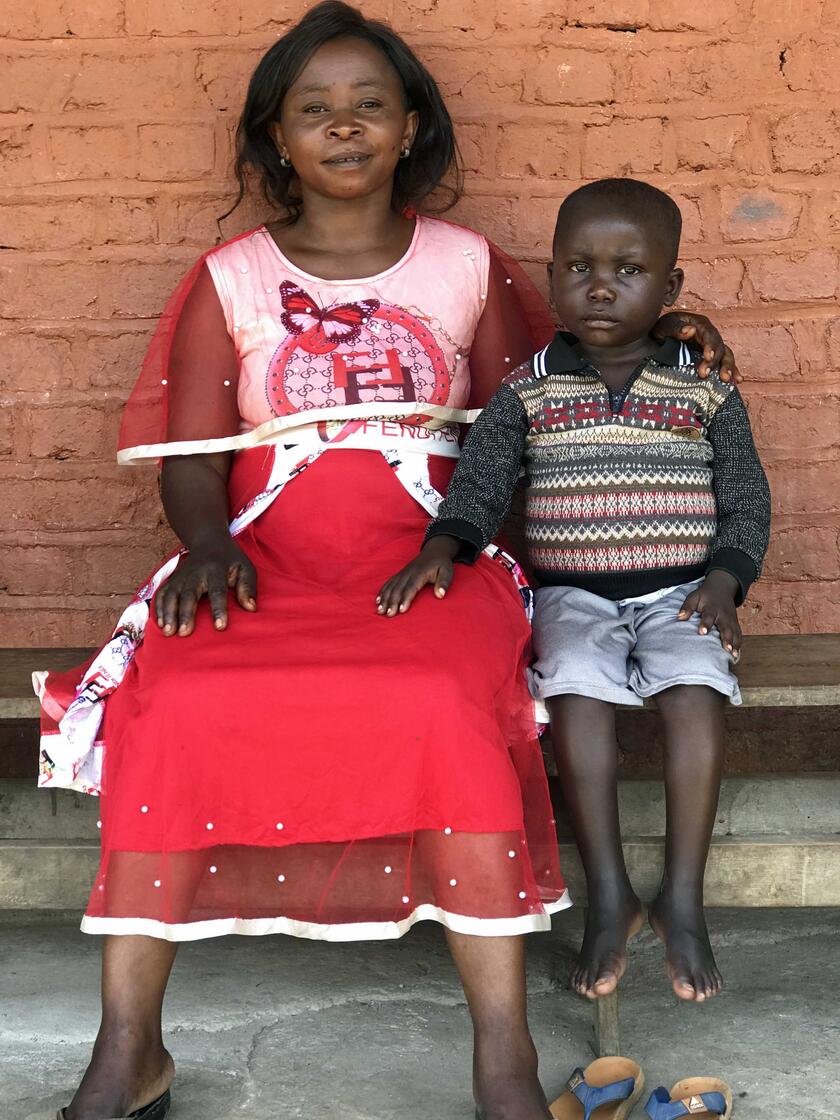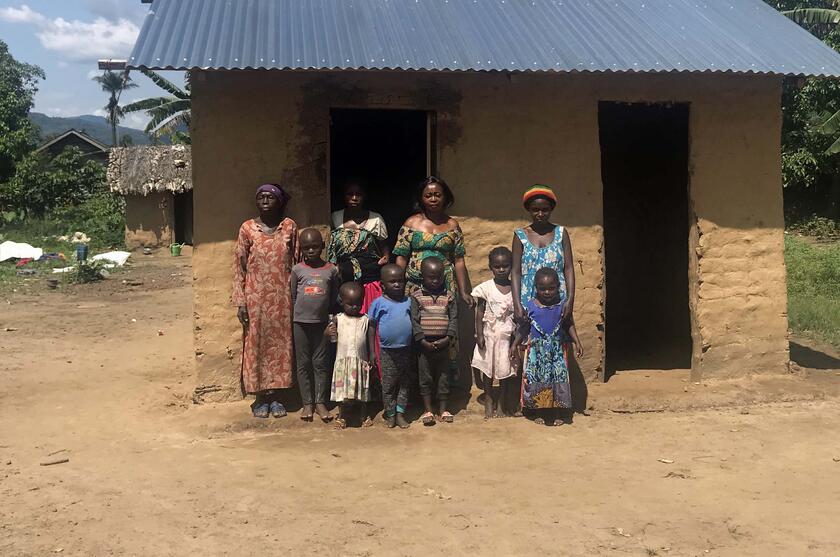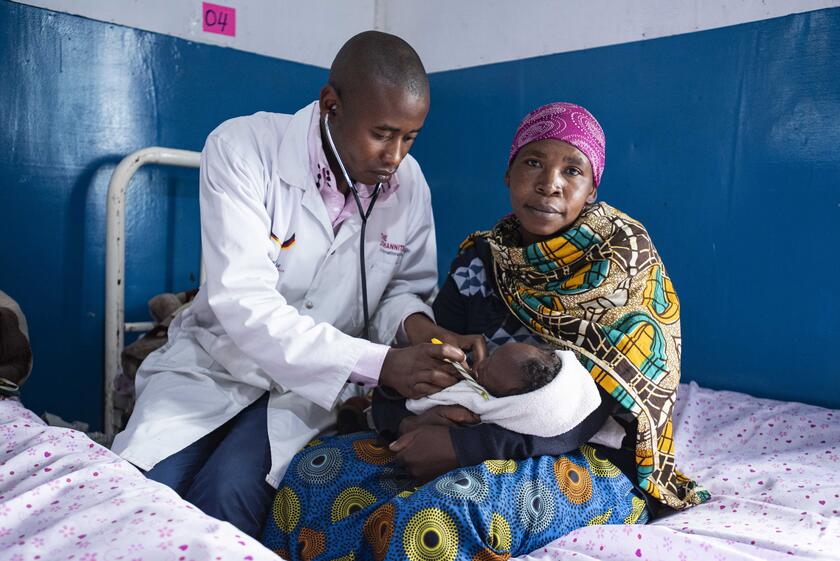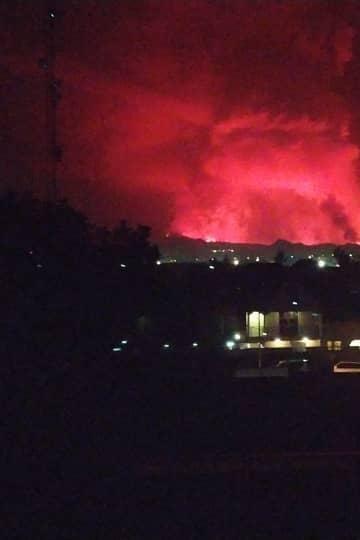DR Congo: For stable health care in times of crisis
The recent eruption of the Nyiragongo volcano in the eastern Democratic Republic of Congo has hit a region that has been in a latent state of emergency for years. Armed conflicts, displacements, epidemics and the Corona pandemic have created one of the biggest humanitarian crises the international community is hardly looking at. Johanniter is working to ensure access to primary and secondary health care and is fighting chronic malnutrition, especially amongst children.
The cheeks of the child in the photo are sunken, the thin legs and arms hang down powerlessly. "I was sure at that time that my son would die," Kahindo Machozi remembers today. It was only a few months ago that the life of her five-year-old son Kombosi was on the brink. Her son suffered from chronic diarrhoea and loss of appetite. His belly swelled and his skin turned fair. When he lost a lot of weight, the mother took him to the Kahanga health centre in Pinga health zone, which is supported by the Johanniter.
Immediately on arrival, the nurse told her that Kombosi needed to be taken to the general hospital urgently. "I was desperate about the cost of treatment, but I was assured that Johanniter would cover it," Kahindo says. Kombosi was one of too many children suffering from malnutrition in the region: Almost every second child under the age of five is chronically malnourished, and every eleventh child suffers from acute malnutrition, often coupled with illness. Kahindo spent four weeks in hospital, where he received special food and medication to recover. He was treated as an outpatient for another month.
Awareness for better nutrition

For 32-year-old mother Kahindo, fundamental changes took place during this time. While the boy was being treated, she took part in nutrition tranings run by the Johanniter team. There she learned how to improve the family's nutrition. In the past, the family only ate fufu porridge once a day, but now Kahindo tries to prepare several balanced meals. "I have learned that his brain develops better and he becomes smarter when I feed him well," says the mother. She wants Kombosi to be able to attend school again as soon as possible and that no new illness or malnutrition will stop him from doing so. To this end, she now grows different kinds of vegetables and cereals. Before she sells any of it, she makes sure to keep enough for her own family.
What sounds simple is an immense feat of strength and balancing act. Kahindo makes a living from farming on the small field left behind by her husband. He was killed the same year Kombosi was born. An armed group attacked the village at that time. Kahindo moved with her family into her mother's house, which was destroyed by rebels. Thanks to a French aid organisation, the house was rebuilt. Since then, Kahindo's family has been living together with her sister, her children and her mother in a simple mud house. Twelve of them share three small rooms.
The most neglected displacement crisis in the world

Their fate is not an isolated case in the eastern part of the Democratic Republic of Congo, where armed groups have been causing fear and terror among the civilian population for years. Only last year, after fighting between opposing groups, around 30,000 people had to flee within the region where Kahindo lives with her family. A side note that is hardly noticed internationally. The refugee crisis in DR Congo is one of the most neglected displacement crises in the world, according to the Norwegian Refugee Council (NRC). Only a fraction of the humanitarian needs that are actually necessary to save millions of people from starving had been funded by the middle of the year.
This crisis was compounded in recent months by Corona and further Ebola outbreaks. The consequences have been devastating for the entire country. "There are now more than 25 million people in need of humanitarian assistance. That's one in three people in the country," says Swirri Aboringong. She is responsible for project monitoring at Johanniter and witnessed how Corona directly and indirectly increased hunger. "Ten million people alone were added during the Corona pandemic," says Aboringong. The true extent is far from known. Where houses and fields are burnt down and there is hardly any infrastructure, reliable data is difficult to collect and people are even harder to reach. This makes it all the more important to have accessible basic structures on the ground that can provide people with health care and, as in Kombosi's case, save lives. "If my son gets sick in the future, I know where I can go and get help free of charge," says Kahindo.
With financial support from the German Federal Foreign Office, the German Federal Ministry for Economic Cooperation and Development (BMZ) and United Nations Pooled Funds, Johanniter is supporting eight health zones and their facilities in North Kivu province. Medical care and malnutrition treatment are stabilised and people are sensitised about nutrition and hygiene practices.

